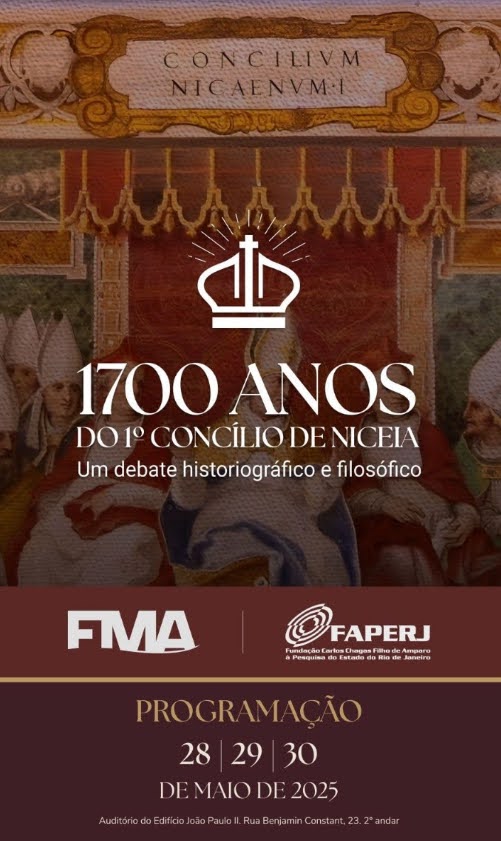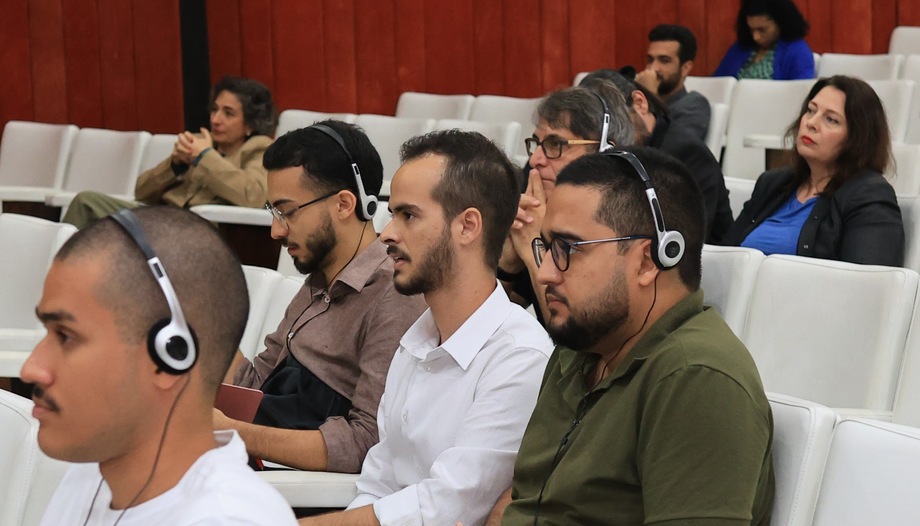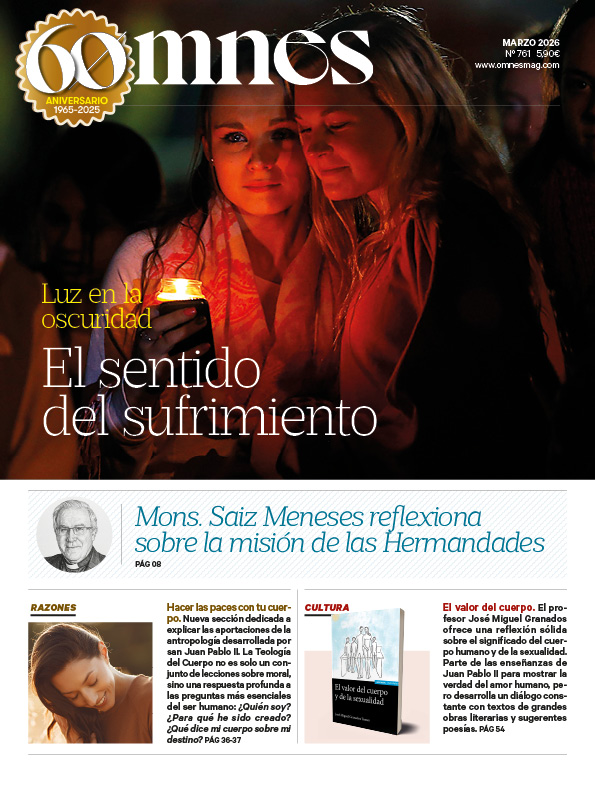On the occasion of the 1700 anniversary years since the First Council of Nicaea, an international congress held in Brazil, in the capital of the state of Rio de Janeiro, shed new light on the historical reception and theological value of this milestone of the Christian faith, combining academic rigor, pastoral sensitivity and ecumenical openness.
Between May 28 and 30, 2025, the St. John Paul II Auditorium at the Metropolitan Curia of the archdiocese of San Sebastian de Rio de Janeirohosted specialists from different parts of the world for the International Congress "1700 Years of the First Council of Nicaea". Far from being limited to a commemorative celebration, the event was consolidated as a space for historiographical renewal and theological updating, articulating cutting-edge research, ecumenical dialogue and pastoral reflection. Undoubtedly, the event offered an opportunity to rediscover Nicaea with a renewed look.
Under the academic coordination of researcher João Carlos Nara Jr., with funding from the Carlos Chagas Filho Foundation for Research Support of the State of Rio de Janeiro (FAPERJ) and organized by the Atlantic Sea Faculty, the event was open to students, researchers, professors, members of religious communities and anyone interested in deepening the themes related to the Council and its historical, theological, philosophical and cultural influence.
Antônio Luiz Catelan Ferreira, auxiliary bishop of Rio de Janeiro and member of the International Theological Commission, and Friar Serge-Thomas Bonino OP, president of the Pontifical Academy of St. Thomas Aquinas, who spoke on the divinity of Christ in the Gospel of John.
For João Carlos Nara Jr., the Council of Nicaea has a profoundly current importance, and the congress sought to illuminate some necessary reflections: "The first Ecumenical Council in history played a fundamental role in the formation of the identity and configuration of the Christian world. Its influence extended to theological and philosophical thought, as well as to the arts, politics, law and culture, in both East and West. To fully understand our world today, it is essential to revisit our historical roots."
A tripartite structure and interdisciplinary perspectives

The conference was organized on the basis of a tripartite structure: the first day examined the historical impact from the Roman Empire to the Reformation; the second addressed the reception of the Council from Eastern and Western ecumenical perspectives; and the third explored the philosophical and theological dimensions underlying the concept of consubstantiality.
This interdisciplinary and innovative approach resulted in new perspectives, integration of documentary, iconographic and archaeological sources, as well as openness to dialogue.
interdenominational, making the event a real present for the contemporary Church.
Rediscovering Nicaea with new eyes
The lectures showed how much the history of Nicaea still has fertile fields to explore. In his lecture, João Carlos Nara Jr. presented the anticipation of the Nicene creed in a third century mariophany, lived by St. Gregory Thaumaturgus, highlighting the active role of the Virgin Mary in the custody of Christian orthodoxy.
André Rodrigues (PUC-Rio) offered a novel interpretation of the Greek term "homoousios" ("consubstantial"), pointing out that its centrality comes more from the post-Nicene controversies. According to his analysis, the proclamation "begotten, not created" constituted the true theological key in the response to Arianism.
The round table on Eastern Christianity, with contributions by Alin Suciu (Academy of Göttingen) and Julio Cesar Chaves (Faculty of Theology of the Archdiocese of Brasilia), rescued voices often marginalized in Western historiography. The figure of St. Athanasius of Alexandria, in his post-conciliar pastoral activity, was presented as a key to understand the concrete implementation of the conciliar decisions.
Academic innovation and faith incarnate
A highlight was the presentation by Professor Manuel Rolph de Viveiros Cabeceiras (Fluminense Federal University), who showed how the integration of archaeological, numismatic and textual sources offers a deeper understanding of the Nicene context.
Likewise, the lecture "The Nicene Symbol in the Music of Colonial Brazil", by Professor João Vicente Vidal, explored how the Nicene Creed was set to music in the 18th century, through scores found in the Curt Lange Collection of the Museu da Inconfidência Mineira. His performance demonstrated how faith can be embodied in sounds, practices and affections.
Ecumenical dimension and listening to each other
The congress also stood out for its ecumenical openness, with the participation of representatives from other Christian traditions, such as the Lutheran pastor Païvi Vahäkängas (Finland) and the Presbyterian pastor Isaías Lobão (Brazil), who shared how their respective confessions have received and adapted the Nicene legacy.
Box suggested: "The exchanges, true exercises in mutual listening, confirm that the Nicene creed is the common patrimony of all Christians, even if the reception of its canons varies according to the ecclesial context".
Academic implications and future path
Antônio Catelan Ferreira on the document "Jesus Christ, Son of God, Savior", recently published by the Theological Commission.
International, established relevant links between historical research, theological reflection and the life of the Church today. He showed how the study of the Council of Nicaea remains relevant to liturgical, ecumenical and formative issues.
The round table on the impact of Nicaea on Christian thought, with contributions from Renato José de Moraes (Faculdade Mar Atlântico) and Father Wagner dos Santos (PUC-Rio), highlighted the fruitfulness of the encounter between philosophy and theology around the mystery of Christ.
The research presented here opens promising avenues for future studies. The need to re-evaluate concepts considered central -such as consubstantiality- suggests that other aspects of the council may benefit from renewed methodological approaches. The scientific committee of the event is already working on a book that will bring together the main academic contributions presented.
Pastoral dimension and blessings received
Participants in the congress received significant support from Cardinal Orani João Tempesta, Archbishop of Rio de Janeiro, and Pope Leo XIV, recently elected Supreme Pontiff.
In his letter read during the opening of the event, Cardinal Orani congratulated the Atlantic Sea Faculty and the organization of the congress, underlining that: "More than a doctrinal debate, the Council of Nicaea was a pastoral and theological response to the challenges of unity in faith".
He added: "To celebrate the 1700 years of Nicaea is to recognize that the Christian faith is rooted in the concrete and develops in dialogue with human contexts". "I dedicate to all my blessing and wish success in the work and studies of the Congress."
These blessings and messages were a clear sign of the Church's accompaniment of the fruits of current theological research.
The congress also offered valuable interpretative tools for Christian educators, helping them to present doctrinal developments in a more nuanced and grounded way. To church historians, it offered a contextual methodological model that avoids anachronistic interpretations.
It was reaffirmed that the Council of Nicaea should not be understood as an isolated episode of 325, but as a dynamic process of reception and interpretation that continues to develop over the centuries. This diachronic perspective reveals the vitality of the Christian tradition and its capacity for cultural adaptation without loss of identity.
A memory that illuminates the future
The International Congress demonstrated that the 1700th anniversary of the Council of Nicaea is not simply a historical ephemeris, but an opportunity to reconnect faith, reason and tradition with the challenges of the present. Undoubtedly, the event marked the beginning of new research and publications on the Nicene legacy.
Nicaea remains a point of convergence among Christians, a pillar of faith in the divinity of Christ and a living reference for theological dialogue. In times of fragmentation, this commemoration reminds us that Christian truth is both unique and shared. The Council of Nicaea is not only a past: it is a living heritage in a continuous process of reception and updating.








